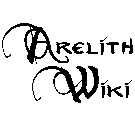Skill changes
This is a list and explanation of Skills which work differently on Arelith to how they do in Vanilla NWN.
General Notes
Many Skills are useful in Dialogues throughout the servers, with NPCs or other objects. These can allow PCs to access services, areas and so on which are generally not available. Which Skills have uses such as these, and what they "unlock", is Find Out In Game information. Note, however, that Skills which ostensibly have no value, or very little value, can be of use. Skills listed under "Disabled & Obsolete Skills" have no such use, however.
Disabled & Obsolete Skills
Ride: Ride is not needed to ride horses (this requires only a Normal Awards), but is used in the wyvern riding fast travel system in the Underdark (details of this system are FOIG).
Modified Skills
Animal Empathy: Characters with 75% or more of their levels as ranger levels can turn animals into henchmen, allowing them to use Animal Empathy on more than one animal at one time.
Appraise: Does not affect buying prices from NPCs, only when selling. A higher appraise score will increase both the item value and the "gold cap per item" that the store allows. Dealing with a trader from the same settlement will factor positively in the reaction. All sources of the appraise skill are valid, but appraise cannot be added through the enchantment basin. In a party, the largest appraise bonus is used. The reaction roll does not reset each time talking to the vendor, but instead, once every two hours.
Bluff: Affects the strength of a character's disguise. A full explanation is given here.
Craft Armor, Craft Weapon: Arelith uses its own system for crafting. Each two ranks in Craft Armor and Craft Weapon add +1 crafting point to use per day. Only base ranks and feats add to the crafting points.
Discipline: Characteristics of a PC, including their sense of martial discipline, can be revealed Inspecting a character. Other characters can roleplay according to it. It is best to consider discipline not necessarily as part of the personality, but simply as the ability to withstand martial maneuvers.
Intimidate: Characteristics of a PC, including their ability to intimidate, can be revealed Inspecting a character. Other characters can roleplay according to it.
Lore: Lore can be used for understanding languages, and is also used alongside Search in investigating bloodstains and interrogating NPCs. Full explanations are given on this page and this page, respectively.
Parry:Parried attacks have +5 AB and damage bonus equal to half the parry skill up to 20 ranks, and 1/4 beyond 20 ranks. Skill bonus from items count. Parry is a toggled mode, like the modified (Improved) Expertise.
Perform: Affects the strength of a character's disguise. A full explanation is given here.
Persuade: Characteristics of a PC, including their ability to persuade, can be revealed Inspecting a character. Other characters can roleplay according to it. Additionally, it allows characters to receive slightly more gold when turning in bounties.
Pickpocketing: Specific rules about Theft apply to Pickpocketing. These are explained in separate article about pickpocketing. Also; pickpocketing hostile mobs will reward a percentage of the mob's experience.
Search: Search adds a chance of discovering up to two extra items when looting a corpse (max 100% at 100 Search), in a party, the largest Search bonus is used when looting. Search is also used alongside Lore in investigating bloodstains. A full explanation is given here.
Spot: In addition to standard detection of Hide and pickpocketing attempts, Spot is used for Inspecting and recognition of disguised characters.
